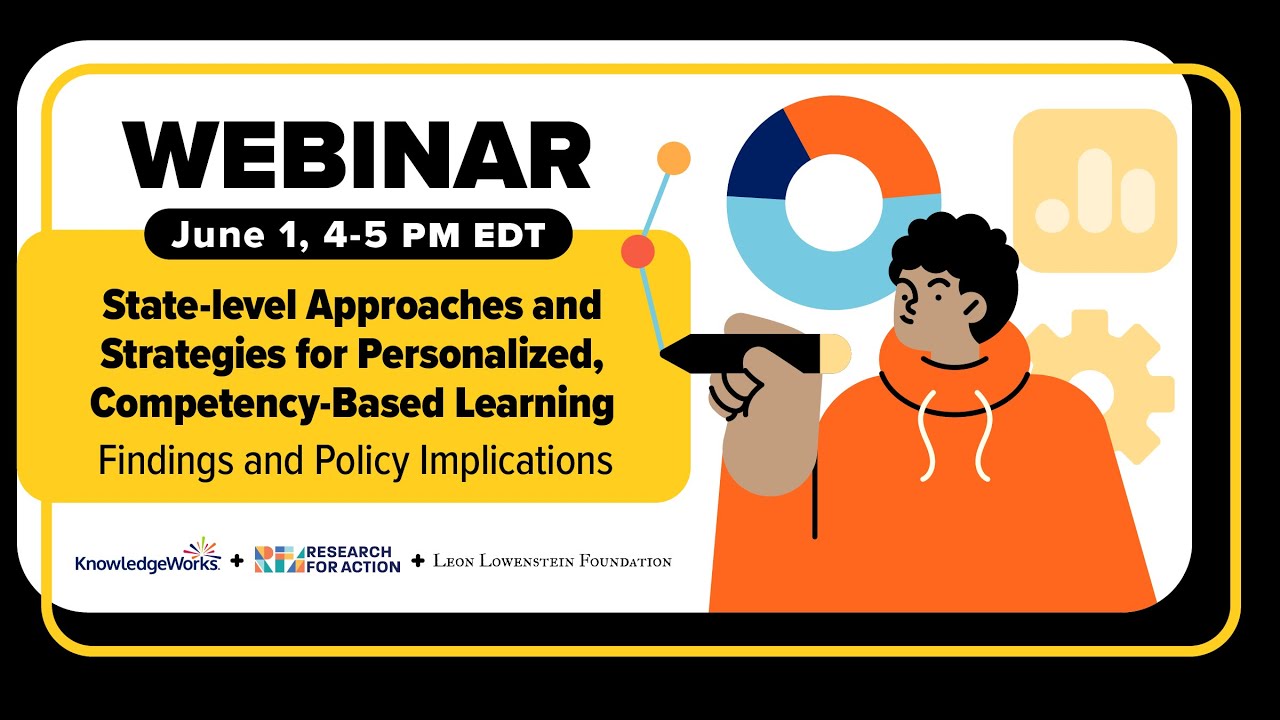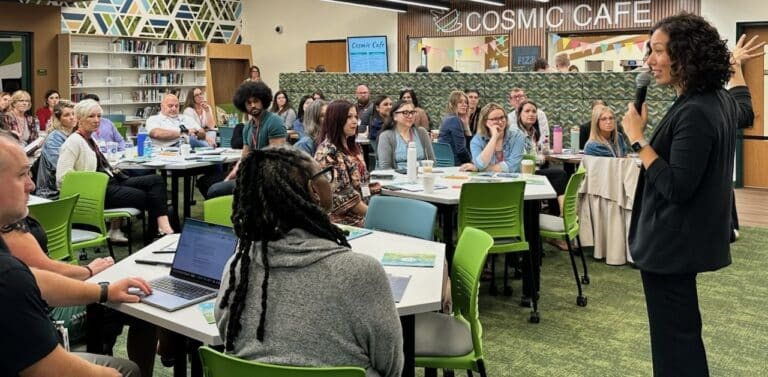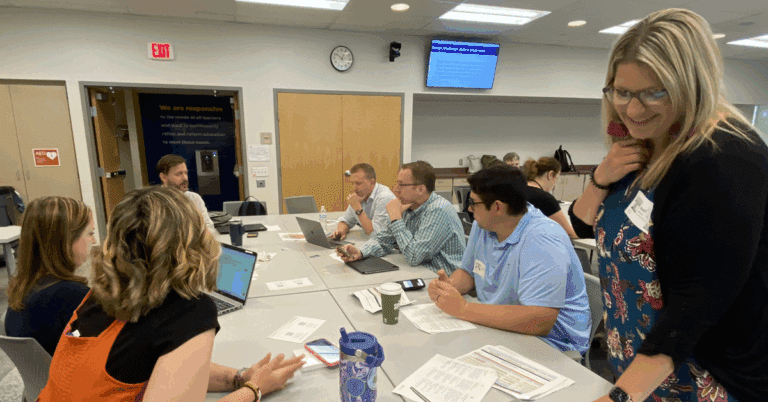To support the implementation of personalized, competency-based learning, states must establish the conditions necessary and remove any barriers to assist with implementation.
In a recently recorded conversation about the exploratory cross-state report with Research for Action (RFA) and KnowledgeWorks, the panel provides a roadmap to systemic adoption of personalized, competency-based learning. This roadmap does not represent all the possible options available for states but, instead, offers decision points for states to consider along the way.
Systems change takes time and effort at the state level. “Sometimes it can be years to fully implement the types of changes that are needed to foster the growth of these types of learning systems,” said Jon Alfuth, director of state policy for KnowledgeWorks. “This is something that’s one of the core lessons that we really come to believe at KnowledgeWorks – that you really have to do things with people and not to them. And that takes time.”
Stewart Hudson of the Leon Lowenstein Foundation and Rebecca Wolfe, vice president of impact and improvement for KnowledgeWorks, frame the importance of the research. Mark Duffy, senior research associate for RFA, and Mary Eddins, policy associate for RFA, present the research findings, and Alfuth discusses the high-level implications of the findings, based on state policy implementation work.
Watch the video below to see the breakdown of state-level decision points for consideration, the three main components of logic models, equity considerations, recommendations for creating state-level conditions to support the work and state support for local implementation.

Read the research report to learn more about the process and results.








